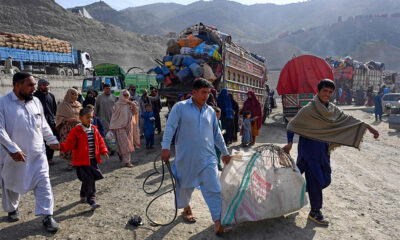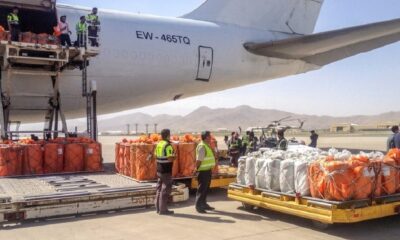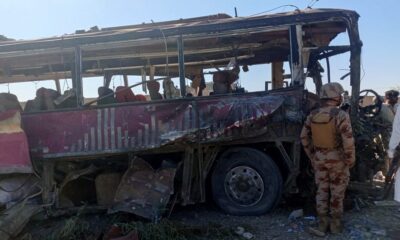Health
Child deaths in Gambia linked to cough syrups made in India – WHO
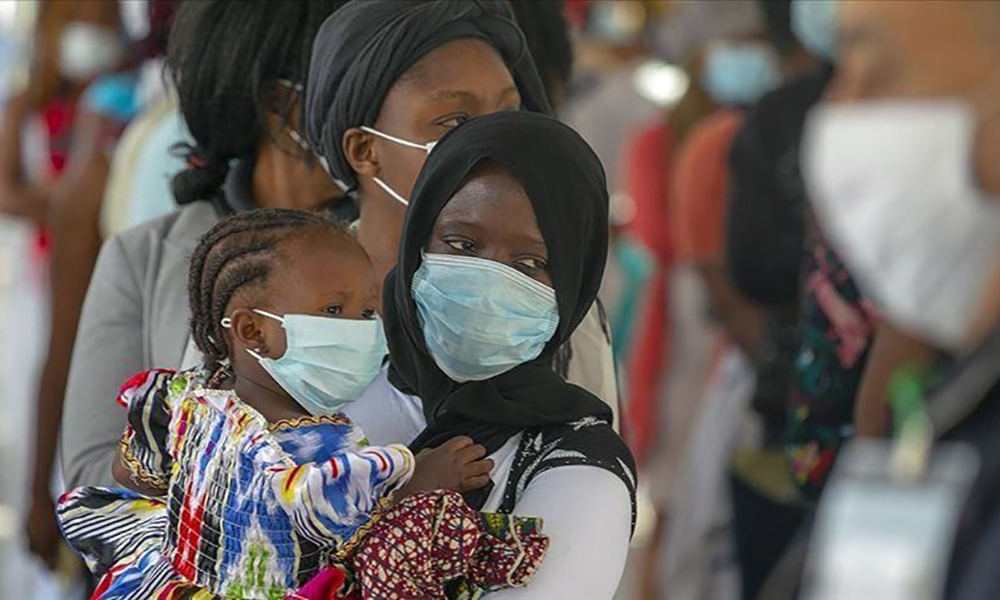
The deaths of dozens of young children in Gambia from acute kidney injuries may be linked to contaminated cough and cold syrups made by an Indian drug manufacturer, the World Health Organization said on Wednesday.
The findings, announced by WHO Director-General Tedros Adhanom Ghebreyesus, followed tests on several medicinal syrups that were suspected of causing 66 child deaths in the tiny West African country.
Tedros told reporters that the U.N. agency was conducting an investigation with Indian regulators and the company that made the syrups, New Delhi-based Maiden Pharmaceuticals Ltd.
Maiden Pharma declined to comment, while calls and messages to the Drugs Controller General of India went unanswered. India’s health ministry did not respond to a request for comment, Reuters reported.
According to Reuters the WHO issued a medical product alert on Wednesday asking regulators to remove Maiden Pharma goods from the market.
The products may have been distributed elsewhere through informal markets, but had so far been identified only in Gambia, the WHO said in its alert.
The alert covers four products: Promethazine Oral Solution, Kofexmalin Baby Cough Syrup, Makoff Baby Cough Syrup and Magrip N Cold Syrup, read the report.
Lab analysis confirmed “unacceptable” amounts of diethylene glycol and ethylene glycol, which can be toxic and lead to acute kidney injury, the WHO said.
Medical officers in Gambia raised the alarm in July, after dozens of children began falling ill with kidney problems. The deaths confounded medics before a pattern emerged: dozens of patients younger than five were falling ill three to five days after taking a locally sold paracetamol syrup.
Gambia’s director of health services, Mustapha Bittaye, said similar problems have been detected in other syrups but that the ministry is awaiting confirmation of the results, Reuters reported.
He said the number of deaths has tapered off in recent weeks and that the sale of products made by Maiden Pharmaceuticals was banned. However, until recently, some of the syrups were still being sold in private clinics and in hospitals, he said.
Gambia’s Medicines Control Agency sent a letter on Tuesday to health professionals ordering them to stop selling any of the products listed by WHO.
Maiden Pharmaceuticals manufactures medicines at its facilities in India, which it then sells domestically as well as exporting them to countries in Asia, Africa and Latin America, according to its website.
Health
Saudi Arabia confirms $500 million pledge to Afghanistan, Pakistan polio campaign
The WHO said the funds, initially pledged in April 2024, will be disbursed to help end the wild form of polio in Pakistan and Afghanistan and stop outbreaks of variant polio.
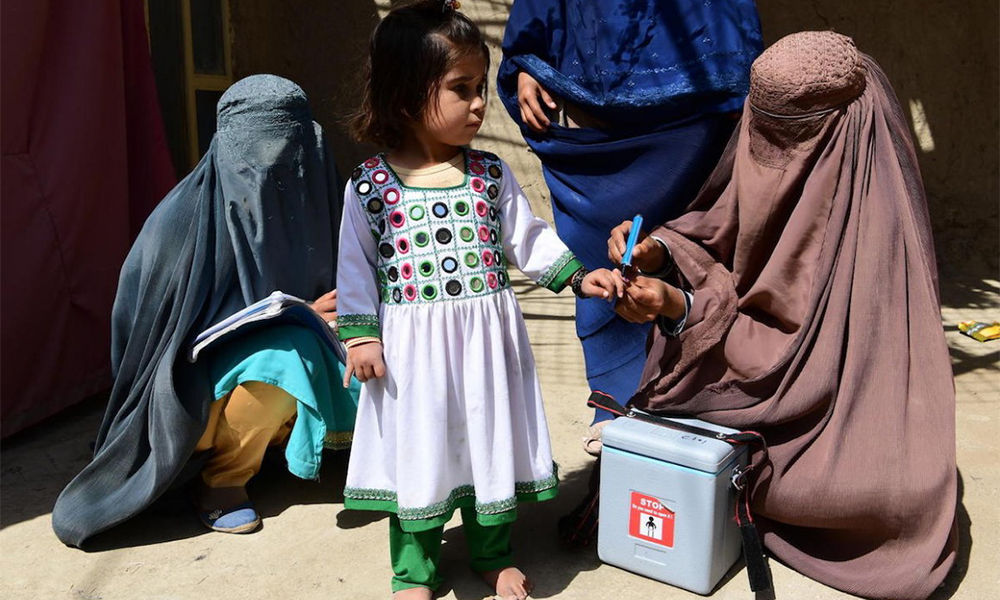
The World Health Organization said Monday Saudi Arabia has reaffirmed its $500 million commitment to the Global Polio Eradication Initiative (GPEI).
The WHO said the funds, initially pledged in April 2024, will be disbursed to help end the wild form of polio in Pakistan and Afghanistan and stop outbreaks of variant polio, Reuters reported.
Wild polio — a naturally occurring form of the viral disease — is endemic in Pakistan and Afghanistan, which together reported 99 cases last year, according to the WHO. Variant polio is caused by the weakening of the oral polio vaccine.
The GPEI hopes to declare an end to the wild virus and the vaccine-derived variant by 2027 and 2029, respectively, compared with a previous deadline of 2026 for both forms.
Health
Chinese researchers find bat virus enters human cells via same pathway as COVID

A newly discovered bat coronavirus uses the same cell-surface protein to gain entry into human cells as the SARS-CoV-2 virus that causes COVID-19, raising the possibility that it could someday spread to humans, Chinese researchers have reported.
The virus does not enter human cells as readily as SARS-CoV-2 does, the Chinese researchers reported in the journal Cell, opens new tab, noting some of its limitations, Reuters reported.
The scientists said that like SARS-CoV-2, the bat virus HKU5-CoV-2 contains a feature known as the furin cleavage site that helps it to enter cells via the ACE2 receptor protein on cell surfaces.
In lab experiments, HKU5-CoV-2 infected human cells with high ACE2 levels in test tubes and in models of human intestines and airways.
In further experiments, the researchers identified monoclonal antibodies and antiviral drugs that target the bat virus.
Bloomberg, which reported on the study earlier on Friday, said the paper identifying the bat virus had moved shares of COVID vaccine makers. Pfizer shares closed up 1.5% on Friday, Moderna climbed 5.3% and Novavax was up about 1% on a down day for the broader market.
Asked about concerns raised by the report of another pandemic resulting from this new virus, Dr. Michael Osterholm, an infectious disease expert at the University of Minnesota, called the reaction to the study “overblown.”
He said there is a lot of immunity in the population to similar SARS viruses compared with 2019, which may reduce the pandemic risk.
The study itself noted that the virus has significantly less binding affinity to human ACE2 than SARS-CoV-2, and other suboptimal factors for human adaptation suggest the “risk of emergence in human populations should not be exaggerated.”
Health
UN warns maternal deaths in Afghanistan may rise after US funding pause
Afghanistan has one of the highest death rates in the world for pregnant women, with a mother dying of preventable pregnancy complications every two hours
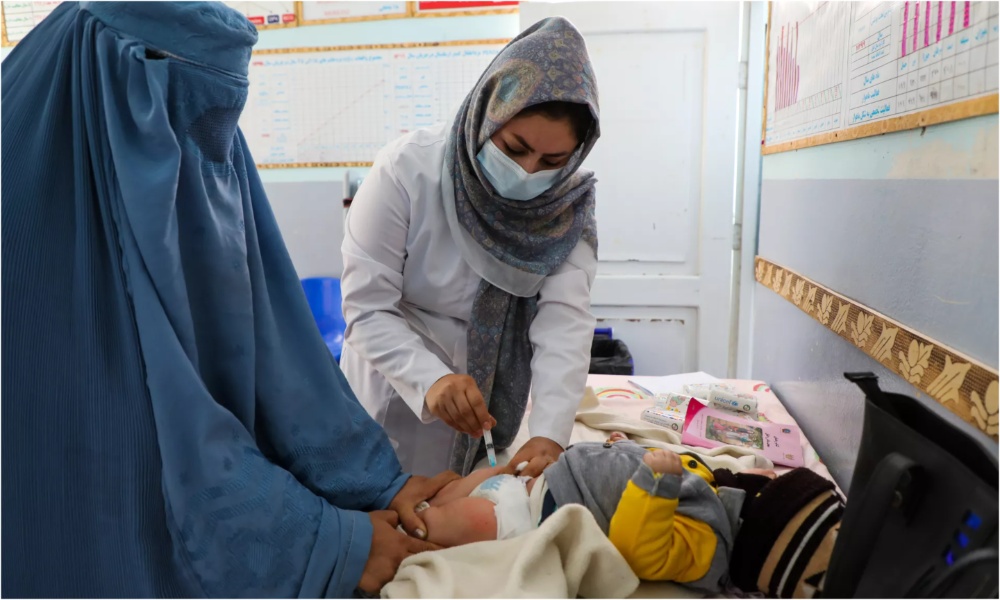
A United Nations aid official said on Tuesday that Washington’s funding pause would cut off millions of Afghans from sexual and reproductive health services, and that the continued absence of this support could cause over 1,000 maternal deaths in Afghanistan from 2025 to 2028.
US President Donald Trump last month ordered a 90-day pause in foreign development assistance, pending assessment of efficiencies and consistency with his foreign policy, setting alarm bells ringing among aid groups around the world that depend on US funding.
Trump has also restored US participation in international anti-abortion pacts, cutting off US family planning funds for foreign organisations providing or promoting abortion.
Pio Smith, regional director for Asia and the Pacific at the United Nations sexual and reproductive health agency (UNFPA), said that over nine million people in Afghanistan would lose access to services and over 1.2 million Afghan refugees living in Pakistan would also be affected due to the closure of health facilities.
Afghanistan has one of the highest death rates in the world for pregnant women, with a mother dying of preventable pregnancy complications every two hours, he said.
“What happens when our work is not funded? Women give birth alone, in unsanitary conditions…Newborns die from preventable causes,” he told a Geneva press briefing.
“These are literally the world’s most vulnerable people.”
“If I just take the example of Afghanistan, between 2025 and 2028 we estimate that the absence of US support will result in 1,200 additional maternal deaths and 109,000 additional unintended pregnancies,” he said.
Across the Asia-Pacific region, UNFPA receives about $94 million in US funding, he added.
Riva Eskinazi, director of donor relations at the International Planned Parenthood Federation meanwhile told Reuters it, too, would have to halt family planning and sexual and reproductive health services in West Africa as a result of the pause.
“We can foresee an increase in unintended pregnancies and maternal deaths. There is going to be a problem sending contraceptives to our members. It’s devastating,” she said.
IPPF, a federation of national organisations that advocates for sexual and reproductive health, calculates that it would have to forgo at least $61 million in US funding over four years in 13 countries, most of which are in Africa.
-
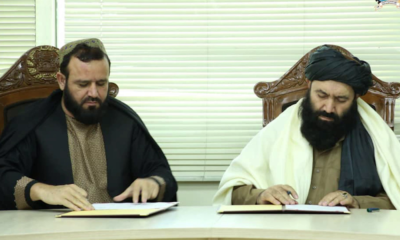
 Latest News4 days ago
Latest News4 days agoMoRRD signs deal for Wakhan road construction
-
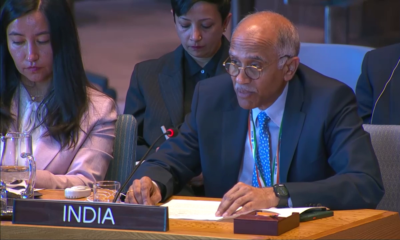
 Latest News5 days ago
Latest News5 days agoIndia says ‘special’ ties have been foundation of engagement with Afghanistan
-
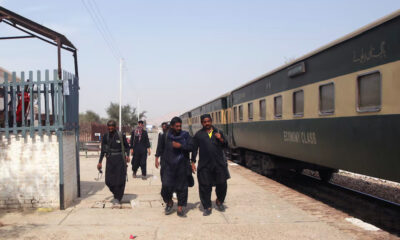
 Regional4 days ago
Regional4 days agoPakistan military ends train standoff, says 21 hostages and four troops killed
-

 International Sports4 days ago
International Sports4 days agoBayern’s Harry Kane sets his sights on lifting FIFA Club World Cup trophy
-

 Sport5 days ago
Sport5 days agoCricket Ireland cancels Afghanistan series for ‘financial reasons’
-
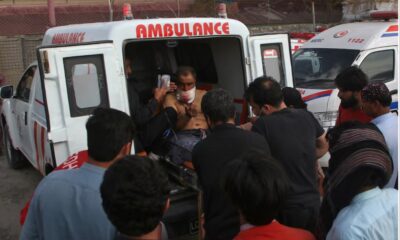
 Latest News4 days ago
Latest News4 days agoPakistan Army claims Balochistan train attack orchestrated from Afghanistan
-
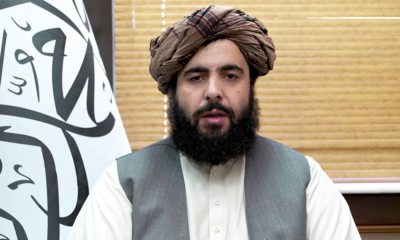
 Latest News5 days ago
Latest News5 days agoIEA dispels Pakistan’s remarks on Daesh in Afghanistan as ‘baseless’
-

 Regional3 days ago
Regional3 days agoSyria keeps role for Islamic law in 5-year transition


